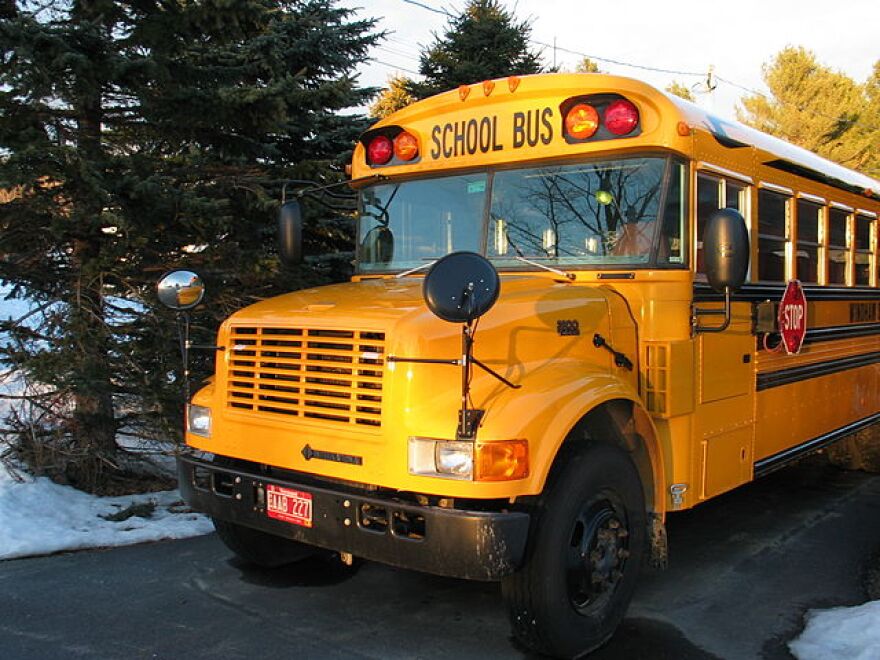With the clock ticking down for local school districts to prepare budgets, the Vermont House held a rare midnight session over the weekend to pass school spending legislation.
Sunday was the beginning of a required 30-day notice period before Vermont’s March 1st Town Meeting Day when many school budgets come before voters. School boards are required to issue the proposed budget, or warn, people one month prior. But legislators were considering changes to Act 46, a measure passed in the last session that limits school spending. It imposes penalties if districts surpass their “allowable growth percentage,” or spending cap, of 2 percent. Act 233 revises the threshold upward point-9 percent, reduces penalties and eliminates the cap in 2018.
Vermont School Boards Association Executive Director Nicole Mace says local school district officials have been frustrated by Act 46. “They were just beginning to understand the implications of the Act 46 thresholds locally when they were hit with a 7.9 percent health insurance increase this fall. That increase alone consumed roughly 60 percent of the allowable growth statewide. And then further analysis by districts throughout the fall revealed really the variability across our 273 districts and it really called into question the fundamental fairness of the mechanism. So the adjustments that were made by the General Assembly over the weekend were really designed to respond to both of those concerns.”
Democratic Representative David Sharpe, chair of the House Education Committee, pushed for passage of the revisions. “We didn’t expect the increase in health care premiums. The Senate certainly didn’t like the thresholds from the very beginning in Act 46. The Senate was determined to repeal the thresholds altogether. The House felt very strongly that they needed to be in place and so it was a difficult process to come to a point where the House and the Senate could agree on a bill that kept the thresholds in place in FY17 and only repealed them in FY18.”
The House Republican caucus wanted to postpone a vote in order to discuss the changes with their constituents over the weekend. In a procedural move, a 12:01 a.m. Saturday session was set.
Republican Minority Leader Don Turner was not happy. But he doubts the outcome would have changed. “The legislative process requires at least a one day holdover and what the Speaker was attempting to do was expedite it in a quick manner so nobody knew what was in the bill.”
Turner believes the revisions will lead to a spike in school spending and property tax increases. “We have information from the Joint Fiscal Office that most property tax payers in Vermont are going to see at least 2 cents per hundred increase in their property tax. And it raised the spending threshold. So we know that there are school districts that didn’t warn the budget will have higher budgets. We know that school districts that complied with the law, they’re penalized for doing the right thing. They repealed this cap in FY18. So it’s a very substantial change.”
Mace, from the School Boards Association, counters that dire fiscal predictions are premature. “What we do know for sure is that fewer communities in this state are going to see their taxes increase as a result of the penalties associated with the Allowable Growth Thresholds. We don’t know what the overall picture will look like for the state in terms of property taxes because communities haven’t voted on their budgets yet and the state hasn’t set the tax rates and the yields. I think it’s premature to declare the outcome this early in the budget cycle.”
Governor Peter Shumlin signed the bill on Saturday, noting in a statement that “…spending caps had become the enemy…” of ongoing work to “right size” the state’s education system.





